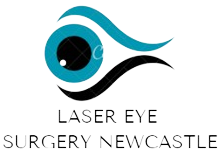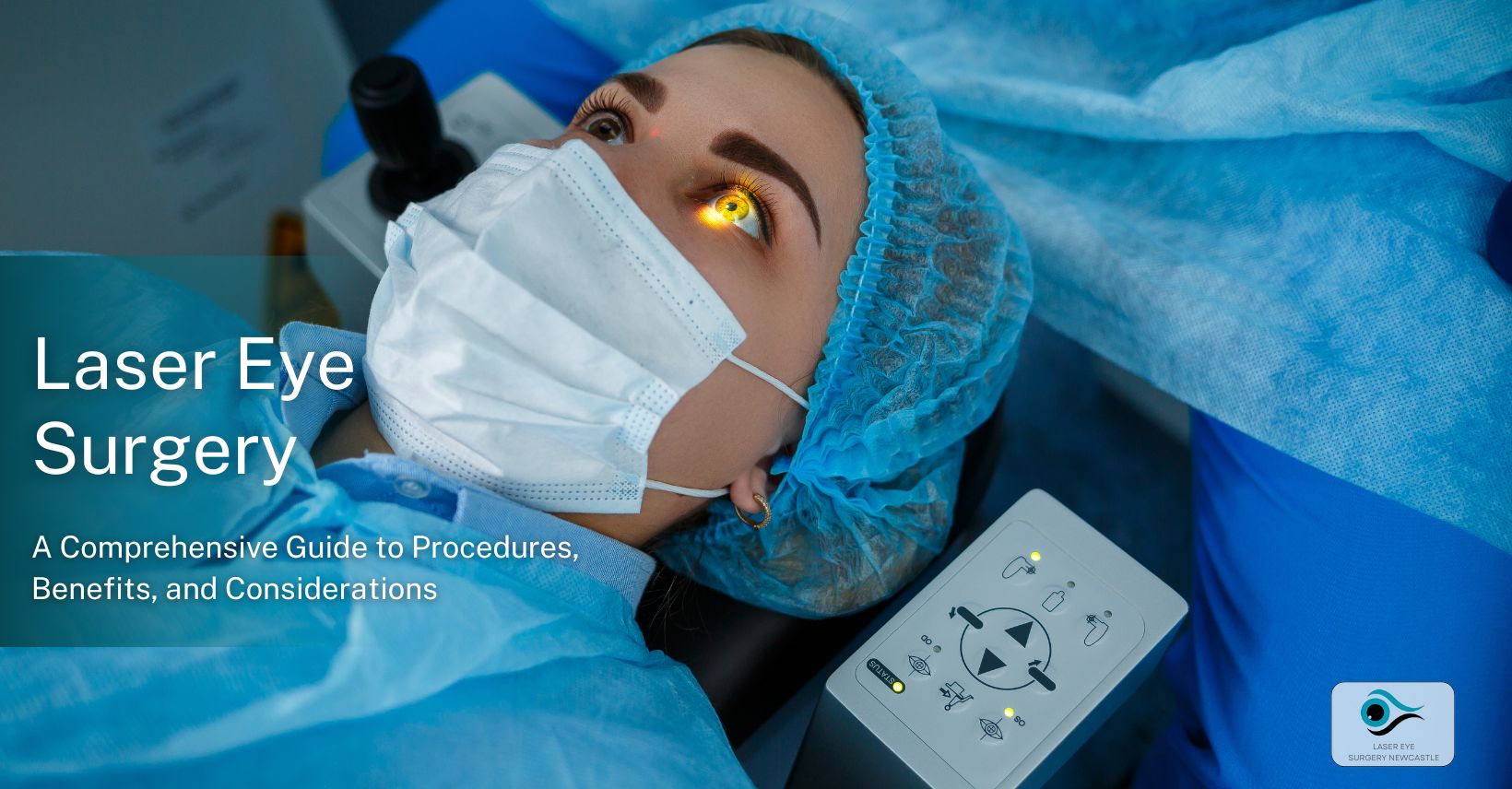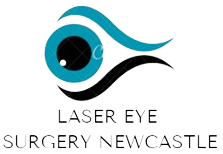Are you tired of relying on glasses or contact lenses to see clearly? Laser eye surgery could be the solution you’ve been looking for.
In this comprehensive guide, we’ll cover everything you need to know about laser eye surgery, from the types of procedures available to the benefits and risks involved.
Find out if you’re eligible for this life-changing procedure, what to expect before, during, and after surgery, and how to choose the right doctor.
Say goodbye to blurry vision and hello to a brighter future with laser eye surgery.
What Is Laser Eye Surgery?

Laser eye surgery is a procedure that uses a laser device to reshape the cornea, correct refractive errors, and significantly improve vision.
This advanced procedure is commonly used to treat common vision issues such as myopia (short-sightedness), hyperopia (long-sightedness), and astigmatism. Three popular types of laser eye surgeries include LASIK (Laser-Assisted In Situ Keratomileusis), PRK (Photorefractive Keratectomy), and LASEK (Laser Epithelial Keratomileusis).
LASIK surgery entails creating a thin corneal flap to reshape the cornea, whereas PRK involves removing the outer layer. LASEK merges elements of both, customising the procedure to individual vision correction needs. This versatility in approach underlines the fundamental principles of how these surgeries refine visual acuity, leading directly into an exploration of how laser eye surgery works.
How Does Laser Eye Surgery Work?
Laser eye surgery uses a precise laser to reshape the cornea, thus correcting various vision impairments and providing clearer vision.
The surgeon first administers numbing eye drops during the procedure to ensure patient comfort. The laser is then used to precisely remove microscopic amounts of tissue from the cornea, reshaping it to improve focus and clarity. This reshaping process is customised to each individual’s exceptional prescription, addressing shortsightedness, longsightedness, and astigmatism.
The eye doctor’s expertise is key to accurately guiding the laser during surgery, typically completed in under 15 minutes per eye. Patients often notice a substantial improvement in vision shortly after the procedure and benefit from minimal recovery time. Understanding these benefits, let’s explore the various Types of Laser Eye Surgery, each customised to meet different vision correction needs.
Types of Laser Eye Surgery
Several types of laser eye surgery are available, each with its distinctive approach to correcting vision, including LASIK surgery, PRK, LASEK, SMILE, and Epi-LASIK.
LASIK
LASIK surgery involves creating a thin flap in the cornea using a laser device then reshaping the underlying corneal tissue to improve vision.
During the LASIK surgery process, the surgeon uses a highly precise, often a femtosecond laser, to create a thin flap on the cornea’s surface. This flap is gently lifted to expose the underlying corneal tissue. The laser then reshapes this tissue with remarkable accuracy to correct refractive errors such as shortsightedness, longsightedness, or astigmatism. The precise reshaping of the cornea allows light to focus accurately on the retina, leading to a clearer vision for the individual undergoing the procedure.
PRK
PRK, or Photorefractive Keratectomy, is a type of laser eye surgery that removes the cornea’s outer layer to reshape it and correct vision.
Unlike LASIK, which creates a flap on the cornea, PRK involves completely removing the outer layer. This leads to a longer recovery time as the epithelium needs to regenerate. This approach makes PRK suitable for individuals with thinner corneas, occupations, or lifestyles that increase the risk of flap complications.
Despite the extended healing period, PRK offers benefits like reduced risk of post-operative complications related to the flap and minimised risk of dry eye syndrome. The procedure typically results in excellent visual outcomes, with many patients achieving 20/20 vision or better.
LASEK

LASEK, or Laser Epithelial Keratomileusis, is a laser vision correction technique that involves loosening the cornea’s epithelial layer before reshaping it.
During the LASEK procedure, the surgeon uses a diluted alcohol solution to gently lift and separate the epithelial layer from the rest of the cornea. This step allows for the reshaping of the cornea to correct refractive errors such as shortsightedness, longsightedness, and astigmatism. LASEK is particularly suitable for patients with thin corneas or irregularities that may not qualify for other laser vision correction procedures.
SMILE
SMILE, or Small Incision Lenticule Extraction, is a minimally invasive laser eye surgery involving a small incision to remove a lens-shaped piece of corneal tissue, thus enhancing vision.
This innovative procedure is gaining popularity for its precision and effectiveness in correcting refractive errors, such as myopia and astigmatism, with minimal disruption to the cornea’s natural structure.
- Unlike traditional LASIK surgery, which involves creating a flap on the cornea, SMILE only requires a small incision. This leads to faster healing and a reduced risk of complications, such as dry eyes.
- Patients undergoing SMILE typically experience a quick recovery, with many reporting improved vision within a few days compared to the longer recovery time required for other laser eye surgery techniques.
Epi-LASIK
Epi-LASIK is a laser eye surgery that involves separating a thin layer of the cornea’s epithelium before reshaping the underlying tissue to correct vision.
Unlike traditional LASIK, which creates a flap, epi-LASIK uses a specialised device called an epithelial separator to lift and preserve the epithelium layer gently. This technique reduces the risk of complications related to the corneal flap, making it a safer option for certain patients.
Epi-LASIK offers important advantages for individuals with thin corneas or those in contact sports, reducing the risk of flap complications. It is particularly beneficial for patients with dry eyes, as it minimizes corneal nerve disruption, enhancing both the healing process and post-surgery comfort. This suitability highlights why understanding candidacy criteria is important, leading us to explore who is eligible for laser eye surgery.
Who Is Eligible for Laser Eye Surgery?
Eligibility for laser eye surgery is determined by several criteria, including a patient’s age, the stability of their vision, overall eye health, and other personal conditions. These factors are thoroughly evaluated during a detailed consultation with an eye specialist. This assessment ensures that candidates are suitable for the procedure, leading directly into our discussion on the exact factors determining who is eligible for laser eye surgery.
Age Requirements
Most eye doctors recommend that patients be at least 18 years old before laser eye surgery to ensure their eyes have fully matured.
Age is an important factor in determining eligibility for laser eye surgery due to the development of the eyes. Younger individuals are more likely to experience changes in their vision prescription, making it challenging to achieve long-lasting results. The cornea, the outermost layer of the eye, reaches full stability in the late teens or early twenties, ensuring that any corrections made during surgery can be accurately maintained. Age-related eye conditions such as cataracts or presbyopia may not be fully developed in younger patients, making it more difficult to address them through laser surgery.
There are exceptions to the age requirement for laser eye surgery. In cases where a younger individual has a stable vision prescription for at least two years and needs vision correction, such as severe shortsightedness or astigmatism, a qualified ophthalmologist may consider them a candidate. Each patient’s special circumstances and eye health history are carefully evaluated to determine the suitability for the procedure.
Vision Stability

Vision stability is important for laser eye surgery, and candidates must demonstrate a consistent prescription for at least one year before the procedure.
Stable vision is not just a prerequisite; it significantly impacts the success and outcome of the surgery. During a consultation, an experienced ophthalmologist assesses the patient’s eye health and reviews their medical history to determine if their vision has stabilised sufficiently for the procedure. This consultation is a pivotal step in the process, as it ensures that the patient’s eyes are in the best possible condition for the surgery to yield optimal results.
Eye Health
Good eye health is a prerequisite for laser eye surgery, and patients must be free from eye infections, cataracts, and other serious eye conditions.
Before proceeding with laser eye surgery, it is essential for individuals to have a comprehensive eye examination to assess their overall eye health. This examination helps the eye doctor identify any underlying issues affecting the procedure’s success. Conditions such as glaucoma, severe dry eye syndrome, and retinal detachment are examples that could disqualify a candidate from undergoing laser eye surgery. Factors like corneal thickness and the stability of a person’s vision play an important role in determining their eligibility for the surgery.
Other Factors
Other factors, such as general health, lifestyle, and certain medical conditions, can also impact a patient’s eligibility for laser eye surgery, which are thoroughly evaluated during the consultation.
General health plays an important role in determining whether a person is a suitable candidate for laser eye surgery. For example, individuals with underlying health issues like diabetes or autoimmune disorders may face higher risks during the procedure.
Lifestyle factors like smoking and participation in high-impact sports can affect the outcome of laser eye surgery and the recovery process. Before proceeding, it’s critical to have a thorough consultation with an experienced eye surgeon to evaluate these influences and understand the associated risks. This preparation is essential in knowing what to expect before, during, and after laser eye surgery, ensuring you are fully informed throughout the treatment journey.
What to Expect Before, During, and After Laser Eye Surgery?
Undergoing laser eye surgery involves several stages, including:
- Pre-operative preparations like a comprehensive eye examination,
- The actual procedure,
- An eye shield may be used to protect the eyes during a recovery period.
Pre-Operative Preparations
Before laser eye surgery, patients undergo a thorough eye examination and consultation to ensure they are suitable candidates.
This initial step is important in assessing the eyes’ overall health and determining any underlying conditions that may affect the outcome of the surgery. During the consultation, the surgeon will discuss the patient’s medical history, current eye prescription, and expectations from the procedure. Various tests, such as corneal mapping, pupil dilation, and intraocular pressure measurement, are conducted to evaluate the individual’s candidacy for the surgery. These evaluations help identify potential risks or complications that may arise during or after the procedure, allowing for a personalised treatment plan to be devised.
The Procedure

The laser eye surgery procedure involves using a laser device to reshape the cornea, and an eye shield may be applied to protect the eyes immediately after the surgery.
The laser precisely sculpts the cornea during the surgery to correct the refractive error, improving vision. Patients are often advised to keep their eyes still and focus on an exact point during the procedure to ensure accurate results. After reshaping the cornea, the surgeon may place a bandage contact lens to aid in the healing process. Individuals must follow post-operative care instructions diligently to promote a smooth recovery and achieve optimal visual outcomes. This advanced procedure has helped countless people reduce or eliminate their dependency on glasses or contact lenses.
Recovery Process
Following laser eye surgery, recovery typically involves a few days of rest, adherence to post-operative care instructions, and an eye shield to prevent complications and eye infections.
In the days following surgery, patients typically experience mild discomfort, eye dryness, and light sensitivity. Prescribed eye drops are essential for lubrication and healing while avoiding eye rubbing and irritant exposure helps prevent complications. Attending follow-up appointments is critical to ensure recovery is on track and address any issues early. Limiting physical exertion and avoiding harmful environments are advised until the surgeon approves. Understanding these post-operative measures leads us into a deeper discussion on the Benefits and Risks of Laser Eye Surgery, emphasizing the importance of careful post-surgery care in balancing these aspects.
Benefits and Risks of Laser Eye Surgery
Laser eye surgery offers multiple benefits, such as achieving clear vision and reducing dependence on glasses or contact lenses. Still, it also comes with risks and complications that must be considered.
Benefits
One of the primary benefits of laser eye surgery is achieving clear vision, which allows individuals to gain independence from spectacles or contact lenses and engage more freely in various activities.
With improved visual clarity after laser eye surgery, individuals can enjoy swimming, hiking, or sports without spectacles or contacts. They no longer have to worry about their vision getting blurred or lenses falling out during physical activities. This newfound freedom extends to everyday tasks such as driving, reading, or simply enjoying the scenic views without visual aids. Laser eye surgery enhances visual acuity and brings daily life a sense of liberation and convenience.
Risks
Despite its benefits, laser eye surgery carries certain risks, including potential complications such as eye infections, vision loss, or other adverse effects.
Eye infections after laser eye surgery can occur due to improper wound healing or contamination during the procedure. Although rare, vision loss can be a serious outcome that may result from corneal scarring or overcorrection. Other adverse effects, like dry eyes, glare, halos, or double vision, are possible complications.
Risks associated with laser eye surgery can impact both immediate outcomes and long-term vision health. Minimizing these risks requires strict adherence to pre- and post-operative care instructions. Patients must abstain from wearing contact lenses before surgery and follow post-surgery care, including prescribing eye drops and attending scheduled follow-up appointments. Adhering to these guidelines is important in determining whether laser eye surgery is the right choice for you.
Is Laser Eye Surgery Right for You?
Determining if laser eye surgery is right for you involves a thorough consultation with an eye doctor who will assess your vision correction needs and overall eye health.
During the consultation, your eye doctor will assess important factors like prescription strength, corneal thickness, and overall eye structure to determine your suitability for laser eye surgery. They will also consider your lifestyle and expectations while discussing potential risks or complications. This essential evaluation provides the necessary information to make an informed decision about undergoing the procedure. Understanding these details is critical as you move to the next step: Finding the Right Doctor for Laser Eye Surgery and ensuring you choose a specialist who best aligns with your needs and circumstances.
Finding the Right Doctor for Laser Eye Surgery
Finding the right doctor for laser eye surgery involves researching experienced eye surgeons, scheduling consultations, and seeking recommendations from clinic coordinators.
When looking for a qualified eye doctor, consider their experience performing laser eye surgeries. An experienced surgeon will be well-versed in the latest techniques and technologies, reducing the risks associated with the procedure. Patient reviews can also provide valuable insights into the doctor’s reputation and success rate.
From the first inquiry to post-operative care, clinic coordinators are important in managing the laser eye surgery process. Their guidance through each step and response to concerns can significantly bolster your confidence in choosing the right doctor and clinic. This level of support is essential for a smooth experience and successful outcome, paving the way to our next discussion on the key takeaways for pursuing laser eye surgery.
Conclusion: Key Takeaways for Pursuing Laser Eye Surgery
Pursuing laser eye surgery can significantly improve vision and quality of life. Still, weighing the benefits against the risks and undergoing a thorough consultation to ensure suitability is essential.
One of the main benefits of laser eye surgery is the potential for clear vision without the need for glasses or contact lenses. Many individuals experience improved vision shortly after the procedure, which can enhance daily activities and overall quality of life. Risks such as dry eyes, overcorrection, or under-correction should be carefully considered before proceeding.
That’s why scheduling a consultation with a qualified eye surgeon is important. During this consultation, the surgeon will assess your eye health, discuss the procedure’s suitability, and address any concerns you may have. This personalised approach is essential in making an informed decision that aligns with your needs and expectations. Click here to learn more.






